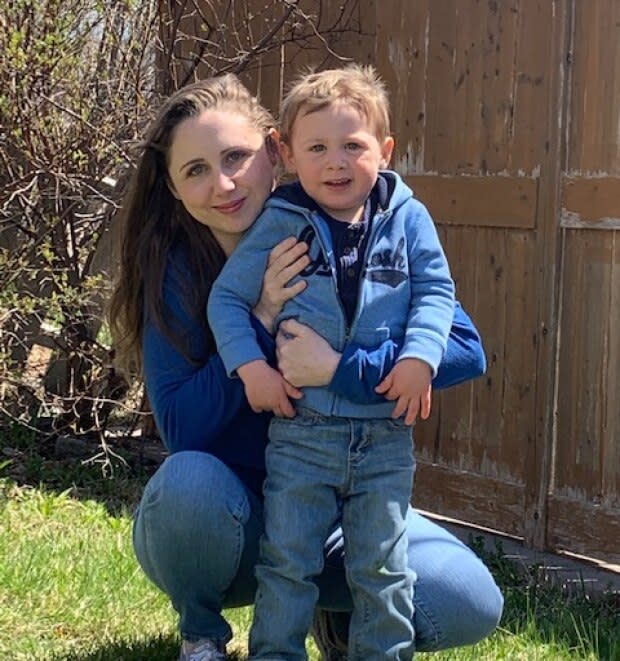N.L. stuttering group helping people find their voice in times of isolation

A support group for people who stutter on the Avalon Peninsula is helping people find their voice, and hopes to bring their work across Newfoundland and Labrador.
The Newfoundland and Labrador Stuttering Association was formed in 2018, after people who stutter found gaps in services in the community.
"We realized that almost every other province had a network for people who stutter to connect and support each other, and we had nothing," board member Allison O'Brien said.
The group hopes to bring awareness and support to the stuttering community. O'Brien, who has a stutter herself, said people in the community face issues other people might not even think about in the course of a day.
"Just imagine calling to order a pizza, and you're hung up on. We are often isolated, ostracized and ashamed, and it's the result of a lifetime and cumulative listening reactions," she said.
"That all adds up to little hits on your self esteem, and over time it can have a devastating impact on your self-worth and your mental health," O'Brien added. "We often talk about stuttering as an iceberg analogy, where the tip of the iceberg is the physical blocks … and underneath is the emotional component."
Video chat presents new challenges
While the group is staying connected through Zoom calls during the pandemic, O'Brien said the move to a digital conversation can make things harder for members of the stuttering community.
"The virtual communication platform, whether it be online meetings or even over the phone, make it harder for listeners to recognize that we have a stutter because they're unable to see the [facial] movements that are often really small," she said.
"A person that I'm talking to can look at me closely and can kind of see these subtle facial movements that indicate that I am trying to speak. Whereas over the phone, it might often sound like no one is even there."

O'Brien said issues around audio can also create new challenges. When platforms like Zoom track audio to determine who is speaking, someone who starts stuttering can have their camera turned off, leading to interruptions from people who think no one is talking.
We are working so hard in hopes that future generations will have less challenges and better quality of life. - Allison O'Brien
The group also hopes to expand into parts of rural Newfoundland and Labrador, O'Brien said, as they know people facing challenges with stuttering are located all over the province.
"In Newfoundland and Labrador, our population is spread out because of geography," she said. "It is often even more isolating for people who stutter in rural communities cause they're the only ones. We want everyone to know they are not alone."
O'Brien said she decided to get more involved with the board following the birth of her son, Levi. She hopes the work done can help him other children in the future.
"It means hope," she said.
"We are working so hard in hopes that future generations will have less challenges and better quality of life. And the more that we educate and raise awareness, the less we will get laughed at and hung up on … this is all about hope, not only for Levi, but for the people who stutter community."
Read more from CBC Newfoundland and Labrador


